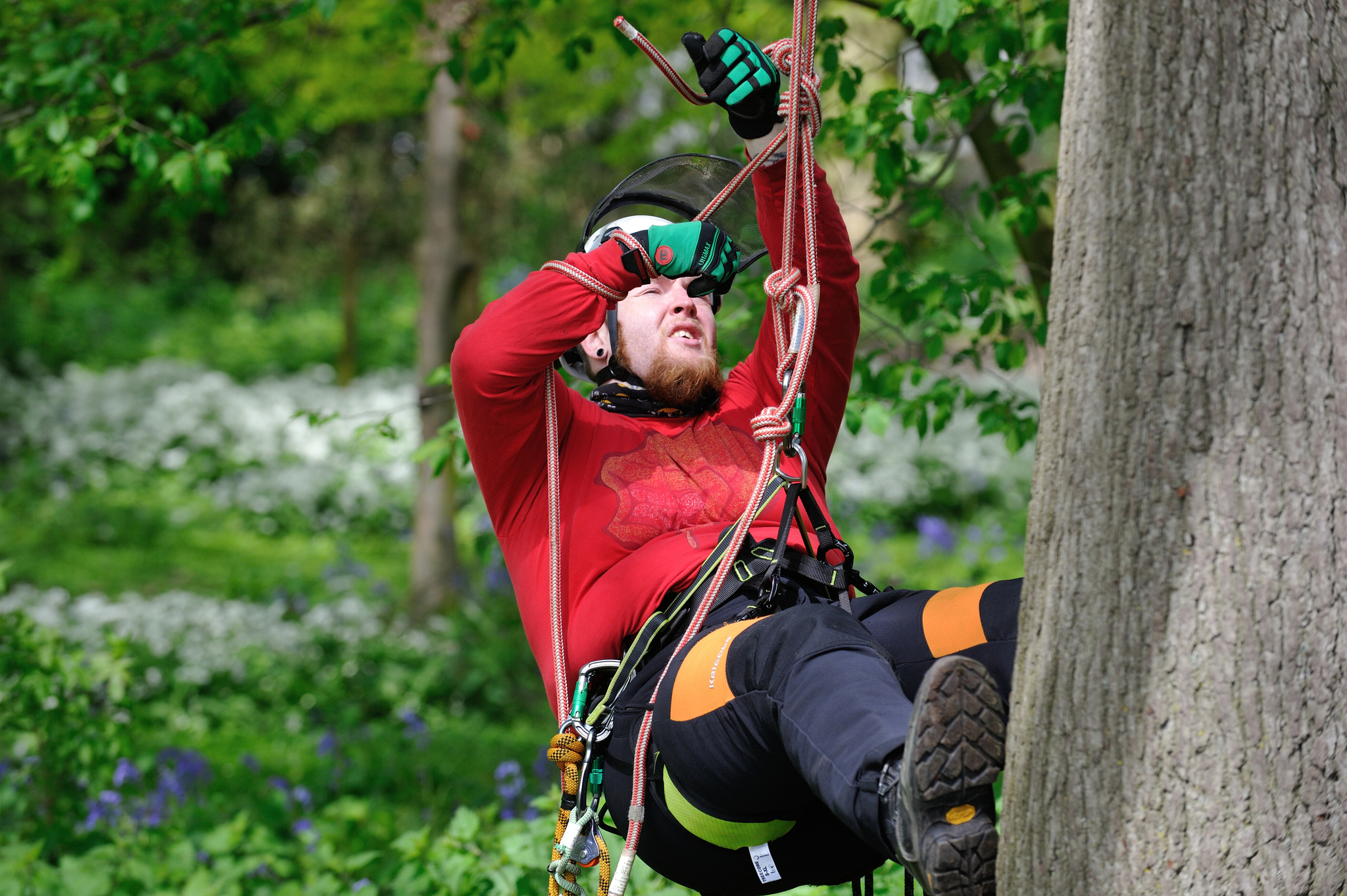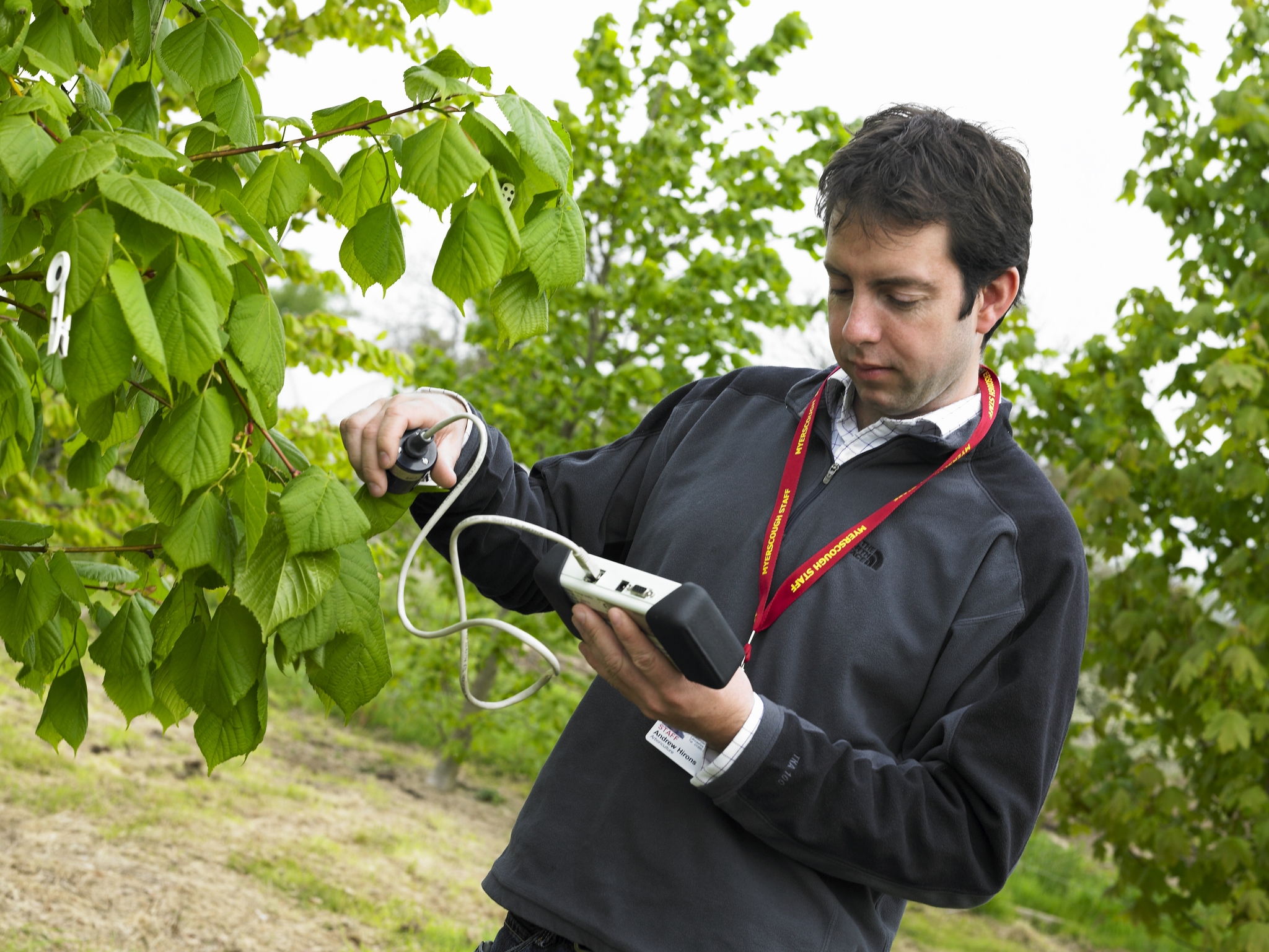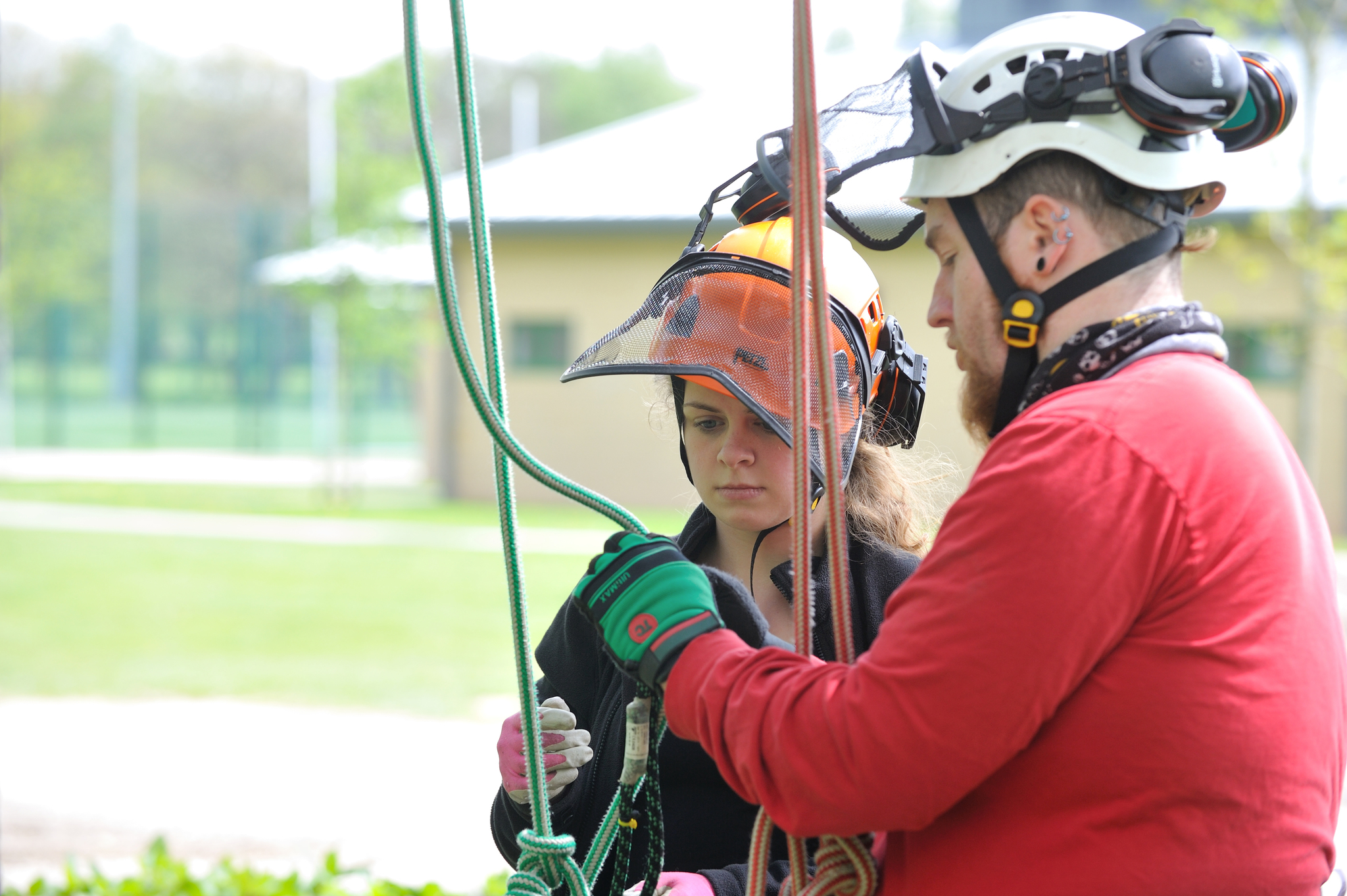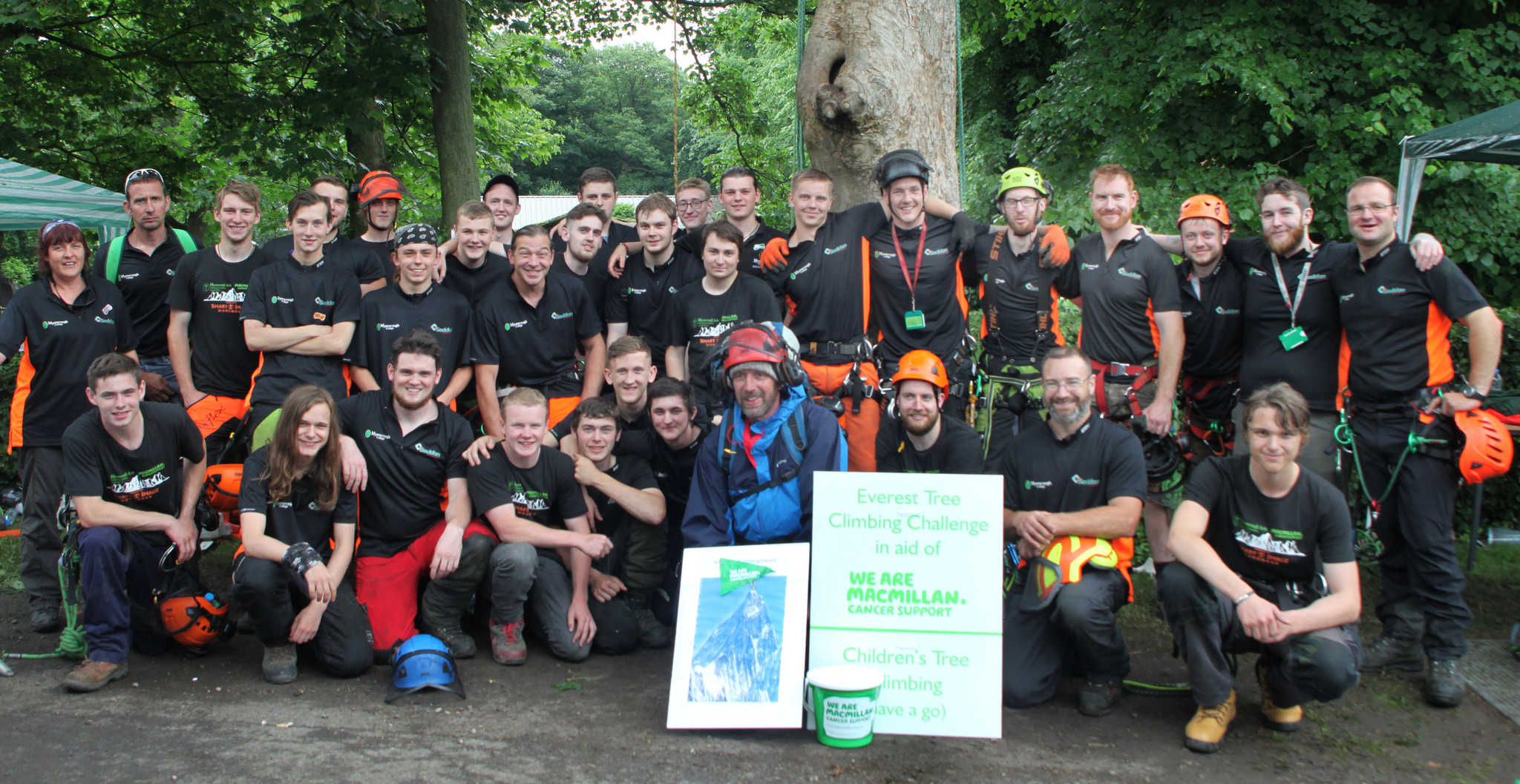Course modules
Year 1
Principles of Health and Safety
You will be able to understand common health and safety practices and processes which they will encounter within the workplace. The land-based sector has one of the worst fatal accident records of any major industrial sector and a lack of basic training and/or competency is often a contributory factor. There is a need for new entrants to these industries to gain essential health and safety knowledge in order to minimise harm to themselves and to improve attitudes and behaviour in the workplace. In addition, you will have the opportunity to consider factors which are specific to your chosen industry, Arboriculture.
Undertake and Review Work Related Experience in the Land based Industries
The aim of this unit is to give you the skills needed to identify, participate in and review work experience in the arboriculture industry. You will be taught the relevant skills such as CV creation; where to seek and apply for jobs within the arboriculture industry; how to prepare for interview and secure a placement; undertake a period of suitable work experience and report back upon the time in industry.
Land based Industry Machinery Operations
You will study the purpose and operation of land based machines including machine operating and working principles. You will explore routine maintenance and appropriate Personal Protective Equipment. You will also develop knowledge of the legal requirements and industry best practice guidance for land based machinery. You will learn how to safely operate and maintain machinery and consider the different conditions in which machinery might operate.
Plant and Soil Science
You will be able to develop an understanding of soil characteristics and their relationship to crop growth and development. You will investigate how plants grow and develop, through a knowledge of their structure and physiology. In addition, you will have the opportunity to consider factors which influence production of commercial crops and other plants, which provides a basis for plant and soil management techniques.
Undertake Estate Skills
The purpose of this unit is to introduce you to common estate skills and knowledge and how these can be applied in practice. You will look at constructing, repairing and maintaining boundaries, structures and surfaces. You will build your experience and confidence in developing practical skills in a range of situations. You will be able to contextualise practical management work to a particular habitat that lies within arboriculture.
Principles of Tree Felling and Chainsaw Use
The purpose of this unit is to provide you with an understanding of the principles of chainsaw maintenance, felling small trees (200- 300mm at felling height) and stump removal and how these can be applied in practice. You will identify and understand a range of petrol-driven chainsaws and felling techniques currently used within the industry, to develop efficient chainsaw maintenance skills and to carry out basic repairs and troubleshooting.
Principles and Identification of Pests, Diseases and Disorders of Trees
You will develop a broad perspective of tree pathology and understand the range of common biotic pathogens and abiotic disorders. The signs and symptoms of common biotic pathogens and abiotic disorders will be described and the life cycles of biotic pathogens will be examined. In addition, you will evaluate appropriate monitoring, prevention and control measures for common biotic pathogens.
Support Arboriculture Operations from the Ground
The purpose of this unit is to provide you with the knowledge and skills to support arboricultural operations. Responsibility for work site management and organisation will be a central part of this unit. You will support arboricultural operations from the ground, select and assist climbers in the use of appropriate equipment to undertake a range of preventative and remedial operations. In addition, you will support advanced climbing operations and control cut sections with rigging equipment.
Principles of Amenity or Forestry Establishment
The purpose of this unit is to provide you with an understanding of tree and shrub establishment and protection and how these can be put into practice. You will understand the importance to society and the environment of tree establishment. The objectives of tree establishment, possible financial support and legal considerations will also be examined. You will also develop their understanding of the limitations of common establishment and protection methods and be able to develop their practical skills to establish and protect either amenity or forest trees.
Tree Surveys and Inspections
The purpose of this unit is to provide you with an understanding of the principles of woodland management and how these can be applied in practice. It is key that you gain an understanding of how woodlands are designed and managed based on recommendations from data collected.
Year 2
Business Management in the Land Based Sector
The purpose of this unit is for you to look at the businesses within the land based sector, the role and responsibilities of those employed in land-based businesses and resource requirements.
Woodland Habitat Management
The purpose of this unit is to provide you with an understanding of the principles of woodland habitat management and how these can be applied in practice. The aim of this unit is to provide you with the ability to understand the features of woodland habitats and the skills required for their management.
Principles of Tree Science
The purpose of this unit is to provide you with an understanding of tree science. You will develop an understanding of tree growth and the impact of environmental conditions upon tree developments. In addition, you will understand tree structural growth processes and how decay and wounding can impact upon trees and their management.
Undertake a Specialist Project in the Land Based Sector
The purpose of this unit is for you to gain an understanding of the principles of undertaking a specialist project and how this can be put into practice. You will develop project knowledge and skills by studying a chosen topic area through a project. You will explore topic areas that interest you and select one topic for your project. You will plan and carry out their specialist project working to meet deadlines and monitoring performance. You will prepare an evaluative report looking at how the project performed, if the schedule plan met the project aims and objectives and how improvements could be made in the future.
Identification, Planting, Establishment and Aftercare of plants for Forestry and Arboriculture
The purpose of this unit is to provide you with an understanding of the identification, planting and care of trees and how this can be put into practice. You will be able to identify trees and shrubs by botanic name and specify woody plants that are suitable for the situation and site. In addition, you will be able to plant a range of tree types and provide immediate aftercare. You will also be able to specify future maintenance need.
Urban and Community Forestry Projects
You will develop employability skills using an appreciation of the history and significance of urban forestry and the issues relating to managing public access in urban and community forestry projects. Methods commonly used to promote public engagement and participation, as well as the significance of stakeholder consultation will also be examined. You will be able to produce specifications for an urban or community forestry project, as would be expected in industry, which includes the involvement of the local community.
Tree and Shrub Pruning and Maintenance
The purpose of this unit is to provide you with an understanding of tree and shrub pruning and maintenance and how these can be put into practice. You will understand the reasons for undertaking pruning of trees and shrubs and their varying requirements, as well as the law relevant to the work. Common equipment used to undertake this work will be examined, as well as the biological processes of trees and shrubs and their impact upon pruning and maintenance work. You will be able to assess trees and shrubs for failure and suggest appropriate pruning and other remedial action.
Advanced Arboricultural Practices
The purpose of this unit is to provide you with an understanding of advanced arboricultural practices and how these can be put into practice. You will safely climb trees and select and use appropriate equipment to inspect trees as well as undertake a range of preventative and remedial operations. The range of pruning cuts and techniques will be examined in conjunction with trees’ responses to wounding, with emphasis on how to relate this to the tree care decision making process. In addition, you will undertake advanced felling techniques and dismantle trees.
Arboricultural Skills
The purpose of this unit is to provide you with an understanding of the arboricultural skills and how these can be applied in practice. You will develop the skills and knowledge required to carry out ground based and aerial arboricultural operations, including branch removal, and pruning of trees. The relevant health and safety and other legislations are also covered.
Entry requirements & additional information
Entry requirements
An English GCSE at C (4) or higher plus a minimum of three others at C (4) or higher, including Maths or Science.
Available for age 16-18 students and 19+ students allowing a “fast-track” option to HE. 4 GCSEs at Grade C or above including English Language and Maths or Science or a Level 2 qualification (e.g. First Diploma at Merit level including at least 1 key skill or functional skills at level 2 in either Application of Number or Communication) or equivalent qualifications.
Additional Entry Requirements:
Applicants for courses in Arboriculture studies are expected to show a strong commitment to the industry and a strong personal statement. Candidates must be willing to work outdoors in all weathers, work as part of a team on practical and theory tasks, work on physically demanding tasks and have a passion for the industry.
Learning and assessment
This course is designed for students who wish to develop the core practical skills and knowledge to seek employment in the Arboriculture industry. It will prepare you for entry into a practical employment position within the industry, alternatively it provides an ideal progression route to higher education.
Assessment of technical qualifications is a mixture of internal practical assessment of skills conducted by the teaching team, internal written assignments marked by the teaching team, an externally set synoptic examination that combines the knowledge and practical skills of all of the mandatory units, an external online exam that combines the knowledge of all mandatory units and an online health and safety exam. The assessments and exams are spread throughout the two years.
Students will also receive training and assessment in a range of additional qualifications, which will enhance their employability. During the course students will gain a combination of both academic knowledge and practical skills such as the identification, planting and establishment of trees and shrubs; understanding of the health and safety legislation; foundation knowledge in plant and soil science along with tree and shrub pruning skills. You will gain practical skills in using and maintaining arboricultural equipment including chainsaws (2 stroke and Electric), hand saws, climbing equipment and additional land based machinery.
Additional Qualifications- NPTC Certification.
As part of the course you will be given the option to sit NPTC assessments to demonstrate your competency in use and maintenance of chainsaws; using a rope and harness to access and move around the canopy of a tree and felling trees safely using a chainsaw.
The full list is as follows:
002003 - City & Guilds NPTC Level 2 Award in Chainsaw Maintenance and Cross Cutting (QCF)
002013 - City & Guilds NPTC Level 2 Award in Tree Climbing and Rescue (QCF)
002057 - City & Guilds NPTC Level 2 Award in Safe Use of Manually Fed Wood-chipper (QCF)
For students aged 19+ at commencement of the course a cost of £150 per assessment is payable to Myerscough College finance department before the assessment can take place.
Progression
The Level 3 Advanced Technical Extended Diploma will allow a student to gain UCAS points to progress onto a Higher Education course such as the following:
· FdSc Arboriculture
· BSc Arboriculture and Urban Forestry
· FdSc Horticulture
· BSc Top-up Horticultural Science & Management
Careers
Employment opportunities in the Arboriculture industry are currently excellent. The Level 3 Advanced Technical Extended Diploma course provides the qualifications and experience for entry into the industry at an operational level with future prospects for management. These include positions such as climbing arborist; groundsperson; linesperson and self-employed arborist.
Special requirements
Costs that are mandatory for the course:
Chainsaw Boots: approx. £100-250
Laboratory Coat: approx. £10
Additional Qualifications (19+ learners): approx. £150.00 per NPTC assessment.
Costs that are optional for the course:
Clothing/Equipment: approx. £150
Trips: approx. £50
Work experience
As part of your course of study you will be expected to source a position of work experience with an employer in the Arboriculture industry. This position is a mandatory requirement of this qualification and will provide you with invaluable insight as to the work you can expect to undertake following your time in study.




